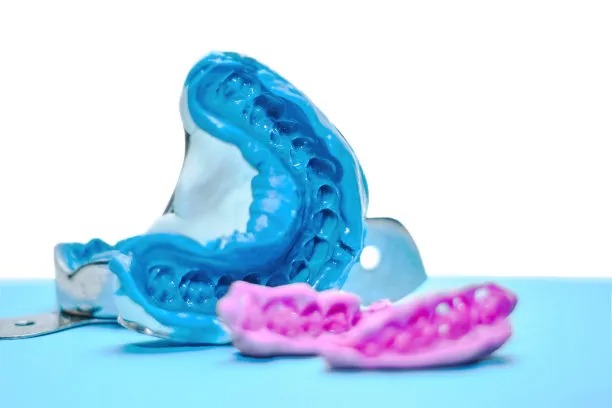Summary: This article delves into the essential precautions necessary for a successful dental filling experience and to ensure long-lasting oral health. Dental fillings are an integral part of maintaining oral hygiene and health, especially when dealing with cavities or damaged teeth. We will explore the primary aspects of preparing for a dental filling, aftercare strategies, choosing the right dental services, and the importance of regular dental check-ups. By following these precautions, patients can minimize discomfort during the procedure and maximize the longevity of their fillings, ultimately resulting in better oral health.
1. Proper Preparation Before Your Filling

Preparing for a dental filling involves several steps to enhance your overall experience. First, discussing any allergies or pre-existing conditions with your dentist is crucial. Some materials used in fillings can provoke allergic reactions; thus, transparency is key to ensuring your safety. Additionally, if you are on any medication, inform your dentist, as certain drugs may affect the treatment process.
Next, understanding the procedure can significantly help ease anxiety. Many patients fear the unknown, so asking your dentist to explain what will happen before, during, and after the procedure is beneficial. A well-informed patient is generally calmer and more accepting of the treatment plan, making the experience much smoother.
Lastly, consider scheduling your appointment at a convenient time. If you often feel anxious about dental visits, it may help to choose a time when you are least likely to feel rushed or stressed. Arriving relaxed can lead to a more positive experience with your dental filling.
2. Aftercare Tips for Lasting Comfort
Post-procedure care is vital for minimizing discomfort and ensuring the longevity of your filling. After your appointment, it’s typical to experience some numbness due to anesthesia. It’s essential to avoid eating hot or cold foods until the numbness wears off, as this could lead to accidental biting or burns.
After the filling, your dentist may recommend avoiding hard or sticky foods for a day or two. This is to reduce the risk of disturbing the filling, particularly if you’ve received a temporary one. Sticking to softer foods will not only protect the filling but also allow your mouth to adjust comfortably.
Regular oral hygiene practices such as brushing and flossing should be meticulously followed post-filling. This will help maintain the area around the filling clean and prevent further decay, ultimately ensuring the filling lasts longer and your overall oral health remains intact.
3. Choosing the Right Dental Services
Selecting a reliable dental service can greatly influence the success of your filling experience. Research is essential; look for reviews and testimonials about local dentists. Personal recommendations can also guide you to find someone trustworthy, ensuring you feel comfortable throughout the treatment.
In addition to credentials, consider the methods and materials the dentist utilizes. Asking about the types of fillings available, such as amalgam, composite, or ceramic, can help you make an informed decision based on durability and aesthetics. Your comfort with the material can enhance your overall experience.
Finally, understanding the dental clinics approach, like their emphasis on patient care and using state-of-the-art technology, can elevate your filling experience. Dentists who prioritize continuous education tend to employ the latest techniques and materials, contributing to higher quality care and better long-term outcomes.
4. Importance of Regular Dental Check-ups
Regular dental check-ups play a pivotal role in sustaining oral health and the durability of your dental fillings. Scheduling routine visits allows the dentist to monitor existing fillings and identify any potential issues early on. This proactive approach can prevent extensive damage or the need for more invasive procedures.
Moreover, during these visits, dental professionals can provide personalized care tips tailored to your specific needs. They can guide you on diet, oral hygiene, and other lifestyle choices that could affect your dental health. Understanding what areas to focus on improves your oral care routine.
Lastly, check-ups often include professional cleanings that help eliminate plaque and tartar buildup. These cleanings support the health of your teeth and fillings, ensuring they can last as long as possible. Skipping these appointments could lead to complications that compromise both your dental fillings and overall oral health.
Summary:
In conclusion, understanding and implementing essential precautions before and after a dental filling can lead to a successful treatment experience. By preparing appropriately, practicing diligent aftercare, choosing the right dental services, and committing to regular check-ups, patients can significantly enhance their oral health outcomes.
This article is compiled by Vickong Dental and the content is for reference only.
Vickong Dental
Vickong Dental is a large medical group established in Hong Kong in 2008 by professors from well-known medical universities in Guangdong and Hong Kong, as well as medical doctors from key national '985' universities (including Master's supervisors and senior professors). The chain of branches brings together expert dentists with PhDs and Master's degrees from Hong Kong and Mainland China, committed to providing high-quality dental treatment.
"Vickong Dental Practices the University Motto of 'Healing and Serving Society,' with a Stable Operation for Sixteen Years. It Has Been honored with Hong Kong Enterprise Leaders's Choice,' and is a Global Trusted Implant Center for the Nobel Implant System. Recommended by Hong Kong Metro Broadcast and Guangdong Television, it Serves Customers from Over Thirty Countries and Regions, Gaining the Trust and Favor of Citizens from the Guangdong-Hong Kong-Macau Greater Bay Area and Surrounding Cities.

Thousands of customers' unanimous praise
The most recognized and highly recommended dental service by customers in the Guangdong-Hong Kong-Macau Greater Bay Area
We Ensure You Receive Detailed Care and Attention Here
Hong Kong standards, Shenzhen prices, Your Trusted English-speaking dentists

Vickong Dental Medical-Grade Instrument Disinfection Process
Vickong Dental Medical-Grade Instrument Disinfection Process

Vickong Dental Chain: A Warm and Comfortable Environment for Treatment






Appointment Hours

Q&A
Why choose Vickong Dental?
Vickong Dental practices the university motto 「Medicine to Benefit Society」, with each branch bringing together highly qualified dentists with doctoral and master’s degrees from Hong Kong and the Mainland, and has maintained seventeen years of steady operation。Recipient of 「2024 Hong Kong Enterprise Leaders Brand」, 「2025 Hong Kong Enterprise Leaders Brand」, a Nobel Biocare Global Trusted Implant Center, and a brand recommended by Metro Radio Hong Kong and Guangdong TV。
To date, we have served customers from more than thirty countries and regions,earning exceptionally high word-of-mouth recognition and trusted recommendations from residents across the Guangdong-Hong Kong-Macao Greater Bay Area and surrounding cities
We have eight major branches in Zhuhai、Shenzhen,and a consultation and service assurance center in Hong Kong,so you can book a free consultation at any time for any questions,which is very reassuring.
If I do not accept the quotation after the CT scan, will I be charged??
No! As long as the actual treatment has not started, you will not be charged any fees.
Will there be any additional charges during the treatment process?
No, there won’t be any additional charges. Before treatment begins, we will clearly explain the treatment plan and its corresponding fees. Only after the patient agrees and signs the consent form will we proceed with the dental service.
Can I pay in Hong Kong dollars?
Yes. Vickong Dental accepts payment in Hong Kong dollars. The amount will be converted based on the exchange rate of the day, and the applicable rate will be clearly communicated to you in advance.
Can I reschedule my appointment at any time?
Yes. Please contact us via **WeChat** or **WhatsApp** as early as possible, providing your original appointment time and details, along with your preferred new date and time slot for rescheduling.













